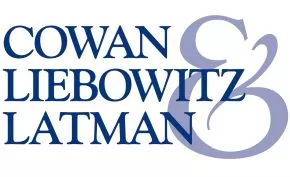- with readers working within the Aerospace & Defence industries
The Trademark Trial and Appeal Board (TTAB) affirmed the refusal of an intent to use application to register BOSTON STRONG as a service mark for entertainment services related to volleyball and to sporting events in general. This decision was based on the ground that this alleged mark fails to function as a source indicator because it consists of a commonplace term, message, or expression widely used by a variety of sources that merely conveys an ordinary, familiar, well-recognized concept or sentiment.

Background
In our 2020 blog post "The Pitfall of 'Failure to Function' as a Trademark," we reported that failure to function refusals had become a trend. We discussed three such failure to function cases: TEXAS LOVE for "hats; shirts," PAST PRESENT FUTURE for "t-shirts," and .SUCKS for domain name registry services.
In a January 2024 opinion reissued as precedential at the request of U.S. Patent and Trademark Office (USPTO), the U.S. Court of Appeals for the Federal Circuit (Fed. Cir.) upheld the USPTO's so-called "Informational Matter Doctrine." In Re: Go & Associates, LLC, 2022-1961 (Fed. Cir. January 22, 2024). In that case, the Fed. Cir. affirmed the refusal to register EVERYBODY VS RACISM for tote bags, clothing, and racial reconciliation services. The Court held that the way a term is used in the marketplace, and how it is perceived by consumers, are questions of fact, and that the TTAB's affirmance of the USPTO's refusal of registration in that case was supported by substantial evidence of third-party uses and by the applicant's own specimens.
This failure to function trend has continued in various cases. On August 12, 2025, the TTAB affirmed the rejection on this ground of an application filed by Franklin Sports, Inc. to register BOSTON STRONG as a service mark.
The BOSTON STRONG Opinion
The evidence established that the term BOSTON STRONG had quickly appeared in numerous press articles as a response to the bombing at the Boston Marathon's finish line on April 15, 2013. Further, the Boston Red Sox baseball team had displayed these words on a jersey displayed in its dugout, and that team continued to hold annual remembrances of the event. Additionally, fundraising t-shirts displaying this slogan had raised $500,000 in sales within a week. This slogan continued to be used in connection with sporting events, and on webpages showing the slogan on various products from multiple sources, many of which were displayed in the TTAB's opinion. The TTAB concluded that this slogan remained a common message of support for the City of Boston.
Applicant argued that the refusal of its intent to use application was premature in the absence of a specimen of use that could be reviewed as to the proper use of this slogan as a mark. The TTAB said that an acceptable specimen, while taken into consideration, is not determinative when weighed against evidence of consumer perception of a common phrase or message.
Applicant also argued that a common message may serve a dual function, such as the third-party registration of CHICAGO FIRE for soccer team services. The TTAB responded that its decision was based on the mark and evidence in the case before it, not loose analogies to other registrations.
Applicant pointed to its co-pending intent to use application to register STRONG for services similar to those at issue in this case (which application had been allowed but had not yet been amended to allege use). The TTAB found that an application to register STRONG was irrelevant to the registrability of BOSTON STRONG. The TTAB also rejected as entirely speculative Applicant's contention that media coverage would transform the common message into a source indicator.
Applicant also cited the existing third-party registrations of BOSTON CELTICS and BOSTON BRUINS. The TTAB stated that registrations of different marks were not relevant as to whether BOSTON STRONG would be perceived as a mark.
Accordingly, The TTAB affirmed the refusal to register BOSTON STRONG as a mark.
In re Franklin Sports, Inc., Application No. 98326109 (August 12, 2025).
The content of this article is intended to provide a general guide to the subject matter. Specialist advice should be sought about your specific circumstances.


